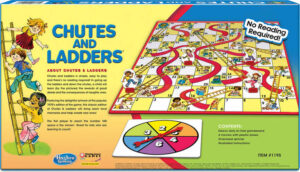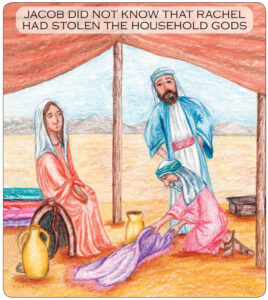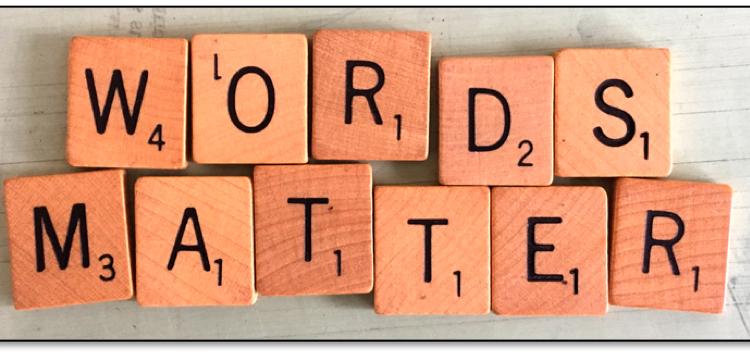Raboyseyee and Ladies,
Did Yaakov Kill Rochel?
This week’s parsha review is dedicated to the memory of my mother Raizel Bas R’ Yitzchok who was tragically taken from her family -run over by a yeshiva bus- 19 years ago today. May her neshomo continue to rise.
Happy Thanksgiving Day and the beginning of a four-day Yom Tov; seemingly the goyim have their own version of our three-day festivities and also have a Shabbis mamish in the middle. As well, welcome to the action packed parsha of Vayetzei which is suspenseful and contains all the elements of a romantic thriller. One man, a love story, four sisters, a scheming father-in-law, bait and switch, twelve children, intrigue, and even more. More? What did we leave out?
Everyone loves this parsha and it zicher gave the heylige Gemora and medrish lots of material. Though it’s been years, if not decades, since you opened a sefer to learn -anything- everyone remembers how Yaakov left Be’er Sheva, arrived in Choron, met Rochel at the well, kissed her, fell in love, worked seven years for his conniving future father-in-law, got married, found Leah in his bed, waited a week, got Rochel, got both handmaidens- married them all – making a total of four wives and had a bunch of children including everyone’s favorite Toirah character, Yoisef. Binyomin will be born in next week’s parsha.
Dozens of folios have been written in the heylige Gemora and many pages in the medrish on Yaakov’s seemingly innocent kiss at first sight; was it? What many of you have forgotten -or never knew- is how Yaakov skedaddled out of town with his brood and was a chased down by his shver who accused him of theft and then warned him not to withhold sexual pleasures from his daughters. Why the heylige Toirah records this narrative, ver veyst, but one thing is zicher: a case where the shver chases down his son-in-law and warns him about satisfying his daughter’s sexual needs has never happened before this one isolated case, and likely never again will. And Lovon was a bad guy?
Was Yaakov a thief? Shoin, let us not answer that question now; we assume Eisav who twice accused Yaakov of theft, had an opinion on the matter. Let us instead read the text of the heylige Toirah and see what went down. What did he steal? Nothing? Ober, it appears from the heylige Toirah that our favorite foremother Rochel may have had dirty hands. More below.
Though not explicitly mentioned in the heylige Toirah, this is also the parsha that gave birth to three huge business opportunities to ensure that future Yiddin -specifically those who learned the parsha well- could earn a good living. The entire yarmulke (kippa) gisheft (business) comes from the very first posik of our parsha, while the board game Chutes and Ladders was -at least- inspired by Yaakov’s dream, and the biggest of all, the ever growing and burgeoning mamish business of sheva brochis- one that is a staple for many kosher food establishments and restaurants in every form and shape- is also inferred from a few words in our parsha.

Who spoke these words? Who suggested sheva brochis? The RBSO? Yaakov? Not! Those words were spoken by Lovon; those of you who make a few some additional income by selling goods and services to those making sheva brochis owe Lovon a debt of gratitude. Though not one of these opportunities is mentioned directly, Toirah inspired entrepreneurs were able to read between the lines and based on midrashic interpretations, and some decent imagination, were able to create new business opportunities where none was called for. Got to love the medrish! The bottom line: We have previously covered all these topics; find the tantalizing details at Oisvorfer.com.
Ober, this year and for the very first time we shall get behind Rochel -I mean, look under Rochel’s rear end and read an incredible myseh that may have caused Yaakov to inadvertently kill the love of his life. What? Yaakov was a murderer? Say it’s not so but let us read the pisukim and we begin here: Says the heylige Toirah (Bereishis 31:19) azoy:
(יט) וְלָבָ֣ן הָלַ֔ךְ לִגְזֹ֖ז אֶת־צֹאנ֑וֹ וַתִּגְנֹ֣ב רָחֵ֔ל אֶת־הַתְּרָפִ֖ים אֲשֶׁ֥ר לְאָבִֽיהָ׃
(19) Meanwhile Lovon had gone to shear his sheep, and Rochel stole her father’s household idols.

Well blow me down! Rochel stole what? What the hec are terofim? Was Rochel an idol worshipper? And a thief? What are terophim, and why would Rochel steal her father’s? What’s pshat? Shoin, let’s begin. As this is the very first time we come across this word in the heylige Toirah, many had opinions as to what it meant, ober most seem to agree that terophim are some form of an idol. And the plural use of the word seems to mean at least more than one idol. Let’s review the facts first: When Yaakov -at last decided to return home, after an absence of some twenty years- the posik tells us that Rochel “stole the terophim that were her father’s.” She didn’t borrow them; she didn’t hide them: she stole them! The heylige Toirah is quiet as to why she committed this theft. Why did she do it? Was this proper behavior? Was Rochel taka a thief? Say it’s not so but the heylige Toirah tells us -mamish in the text- that our foremother Rochel stole them from her father? Oy vey! As mentioned above, the heylige Toirah is silent mamish and does not tell us what terophim are. The good news: terophim are mentioned elsewhere in Tanach where we will learn that they existed in Dovid’s home when he was married to King Saul’s daughter. What? Dovid Hamelech had terophim? More on that soon.
The bottom line: Lovon wanted his terophim back. Not knowing the facts, Lovon accused Yaakov and/or his family of taking them. Ober, Yaakov did not know that Rochel snatched them. He felt certain that no one in his family would take them. Shoin, before we go veyter, let’s see what a few had to say about them.
Says Rashi quoting the medrish (Medrish Rabbah 74:5: ותגגב רחל את התרפים: her intention was to wean her father from idol-worship. And says another medrish (Rabbeinu Chananel) that she stole them in order that he would reconsider his actions, saying to himself that any deity which allows itself to be stolen surely cannot be much good to anyone.

Says the Ibn Ezra “… I believe that the terophim are human images made to draw power from above. I am not permitted to explain this any further.” Some say that Rochel stole the terophim in order to keep her father from idolatry. If this were the case, why did she take them with her and not bury them on the way? The most likely reason that Rochel stole the terophim was that Lovon, her father, was an astrologer, and Rochel feared that he would look at the stars and discover which way they fled. Gishmak: the terophim came with an early version of GPS.
And says the Pirke de rebbe Eliezer (chapter 36), that terophim were deities that people like Lovon worshipped. How did they originate? A firstborn male human being was slaughtered; they cut off his head, salted it (to preserve it from decomposing) using both salt and oil. They inscribed on the forehead of that slain person the name of a deity such as a demon, hung it up under the tongue of the slain person on the wall, lit candles in its honor, prostrated themselves before it, and it would start speaking to the worshipper. Seemingly, also answering questions addressed to it, like to an oracle. Well, blow me down! Terophim are referred to as doing this in the Book of Zecharyah (10,2): כי התרפים דברו און, “for the terophim spoke delusions.” Rochel stole them so that they could not speak to their father and tell him that Yaakov had fled and where he was going. More: She may have used the opportunity to destroy all the idols in her father’s home. Well, blow me down again! The bottom line according to this pshat is that she was guilty of theft- for sure but had a logical reason for her actions.
Let’s also check out the Tur HaOruch (31:19:1) where he says azoy:
(1) ותגנב רחל את התרפים, (Rochel stole the terophim): According to Rashi, she intended to wean her father from idolatry by removing the idol from him. Nachmanides admits that it is possible that Lovon had been using the terophim in his worship of idolatry. It is however by no means certain that terophim served only as idols. We certainly would not expect to come across idols in Dovid Hamelech’s (King David’s) residence, and yet we are told in Shmuel I (19:13) that Michal, Dovid’s wife placed such terophim in Dovid’s bed, feigning that it was he who was sleeping in that bed. In the Novee, Michal used them to help Dovid escape her father’s men when they come to capture him. Let’s read that posik:
שׁמואל א יט:יג וַתִּקַּח מִיכַל אֶת הַתְּרָפִים וַתָּשֶׂם אֶל הַמִּטָּה וְאֵת כְּבִיר הָעִזִּים שָׂמָה מְרַאֲשֹׁתָיו וַתְּכַס בַּבָּגֶד. יט:יד וַיִּשְׁלַח שָׁאוּל מַלְאָכִים לָקַחַת אֶת דָּוִד וַתֹּאמֶר חֹלֶה הוּא.
1 Sam 19:13 Michal then took the terophim, laid it on the bed, and covered it with a cloth; and at its head she put a net of goat’s hair. 19:14 Saul sent messengers to seize David; but she said, “He is sick. It’s zicher the case that Dovid did not keep idolatrous figures in his home. What’s taka pshat? Although not specifically called gods, they are clearly domestic items. It’s more likely that the terophim were objects which enabled people to know the time of day, and in that connection, they were also used to help them to predict future events. The root of the word is from רפה, “weak” as in רפי ידים, “weak-handed,” or נרפים אתם, “you are weak” (in the sense of lazy, not pulling one’s weight.) The reason people call these objects תרפים is to hint that the reliability of these objects in predicting future events is not very strong, although in the majority of instances the predictions prove more or less accurate. Only people who do not pray to the Lord, the Creator, would be foolish enough to put their trust in them. Some people argue that astrologers possess the power to summon up certain images at a time which they can accurately predict. Got all that? Not? let’s move on anyway.
Says the Ibn Ezra that terophim are objects made of copper which are designed to help us determine portions of an hour, such as minutes. Some people claim that some astrologers possess the skill to raise some life-like shapes at a predetermined hour, and that apparition appears to speak intelligently.
The bottom line: what are terophim? Ver veyst. They are seemingly whatever the medrish wants them to be or imagined them to be.
Some say that terophim are replicas of human beings, constructed in a manner designed to endow them with some divine powers. Another view is that she took the terophim so that these would not reveal to him where Yaakov was at that time. The good news: According to that view, Rochel did not really ”steal” them; she but denied her father their use at a critical point in time. Gishmak. In other words: though Rochel taka took them, it is not considered stealing notwithstanding the fact that the heylige Toirah tells us that she davka stole them. Theft for a good reason is not theft. Shoin! Wait: it gets better. Our sages of the medrish (Bereishis Rabbah 74:5) teach us that Rochel stole them for the sake of heaven. Let us recall two other women – Loit’s wonderful daughters who got their father drunk and then took turns bedding him on two consecutive nights. There too, our sages proclaim their motives were pure; they did it “leshaim shomayim” for the sake of heaven. Consequently, Scripture proclaims Rochel’s praise.
Ober says the Bechor Shor -mamish shockingly- that Rochel wanted them for herself!? She did? Was she an idol worshipper? Rochel came to steal the Terophim because they were talking to her through witchcraft and therefore Rochel desired them, but Lovon would serve them and use them for Avoido Zoro (idol worship). The bottom line: Whatever they were seemed to depend on how they were employed. For Rochel, they were innocent somethings that spoke to her. For Lovon, they were idols. Shoin. check out this pshat in Hebrew below.
(א) ולבן הלך לגזוז את צאנו. …ואף רחל מצאה לגנוב את התרפים שהיו מדברים ואומ’ ע”י מכשפים ולכך חמדתן רחל אבל לבן היה עובד אותן ועשה אותן ע”ז וגנבה רחל את התרפים ויעקב לב לבן וע”י שתיהן נרדף אחריהן:
The final bottom line on terophim is this: Each of the answers to the question of what they were is based on the scant evidence we have from Tanach or other sources. Here are the choices: Terophim are idols, and Rochel wanted to separate Lovon from idol-worship. Terophim are tools of divination, and Rochel was trying to make sure Lovon could not divine where the location the family has fled to. Terophim are symbolic of inheritance, and Rochel wanted Yaakov to be considered Lovon’s heir. Terophim were taken on long trips, and Rochel was simply following Mesopotamian custom. What were they, ver veyst? And now that we know with certainty (we don’t) what they were, let’s dig a bit more into motives, her hiding place, and what happened next. And for that raboyseyee, let’s read a few more pisukim; they are amazing.
וַיַּ֥עַן יַעֲקֹ֖ב וַיֹּ֣אמֶר לְלָבָ֑ן כִּ֣י יָרֵ֔אתִי כִּ֣י אָמַ֔רְתִּי פֶּן־תִּגְזֹ֥ל אֶת־בְּנוֹתֶ֖יךָ מֵעִמִּֽי׃
31: Jacob answered Laban, saying, “I was afraid because I thought you would take your daughters from me by force.
עִ֠ם אֲשֶׁ֨ר תִּמְצָ֣א אֶת־אֱלֹהֶ֘יךָ֮ לֹ֣א יִֽחְיֶה֒ נֶ֣גֶד אַחֵ֧ינוּ הַֽכֶּר־לְךָ֛ מָ֥ה עִמָּדִ֖י וְקַֽח־לָ֑ךְ וְלֹֽא־יָדַ֣ע יַעֲקֹ֔ב כִּ֥י רָחֵ֖ל גְּנָבָֽתַם׃
32: But anyone with whom you find your gods shall not remain alive! In the presence of our kin, point out what I have of yours and take it.” Jacob, of course, did not know that Rachel had stolen them.
וַיָּבֹ֨א לָבָ֜ן בְּאֹ֥הֶל יַעֲקֹ֣ב ׀ וּבְאֹ֣הֶל לֵאָ֗ה וּבְאֹ֛הֶל שְׁתֵּ֥י הָאֲמָהֹ֖ת וְלֹ֣א מָצָ֑א וַיֵּצֵא֙ מֵאֹ֣הֶל לֵאָ֔ה וַיָּבֹ֖א בְּאֹ֥הֶל רָחֵֽל׃
33: So Laban went into Jacob’s tent and Leah’s tent and the tents of the two maidservants; but he did not find them. Leaving Leah’s tent, he entered Rachel’s tent.
ורָחֵ֞ל לָקְחָ֣ה אֶת־הַתְּרָפִ֗ים וַתְּשִׂמֵ֛ם בְּכַ֥ר הַגָּמָ֖ל וַתֵּ֣שֶׁב עֲלֵיהֶ֑ם וַיְמַשֵּׁ֥שׁ לָבָ֛ן אֶת־כׇּל־הָאֹ֖הֶל וְלֹ֥א מָצָֽא׃
34: Rachel, meanwhile, had taken the idols and placed them in the camel cushion and sat on them; and Laban rummaged through the tent without finding them.
וַתֹּ֣אמֶר אֶל־אָבִ֗יהָ אַל־יִ֙חַר֙ בְּעֵינֵ֣י אֲדֹנִ֔י כִּ֣י ל֤וֹא אוּכַל֙ לָק֣וּם מִפָּנֶ֔יךָ כִּי־דֶ֥רֶךְ נָשִׁ֖ים לִ֑י וַיְחַפֵּ֕שׂ וְלֹ֥א מָצָ֖א אֶת־הַתְּרָפִֽים׃
35: For she said to her father, “Let not my lord take it amiss that I cannot rise before you, for I am in a womanly way.” Thus he searched, but could not find the household idols.
Let’s review: When Lovon demanded that his idols be returned to him, Yaakov, not knowing of Rochel’s part in this matter, announced that “whoever you find has your idols, that person shall not live. In front of our kinsmen, identify for yourself what I have [that is yours] and take it.” When Lovon came to search Rochel’s tent, she sat on the idols and told her father that she could not rise, “for the way of women was upon her.” Lovon left without his idols. The bottom line: Rochel -taking a page out of her father’s playbook- told a shtikel lie. She hid the terophim under her derriere and then told her father she could not dismount from the camel as she was having her period. Mamish gishmak.
Ober, the following questions come to mind: Why did Rochel keep her father’s idols? Why didn’t she throw them away before or after Lovon caught up with her family? Was her early death related to this, and the curse that Yaakov gave to the one who had the idols? Why didn’t she tell Yaakov about the idols, at least after his curse so Yaakov could revoke his words.
The answer to all these questions is that we don’t that any of the answers proffered are 100% factual. According to the medrish -working the case of Rochel’s untimely passing as would any detective- Yaakov, not knowing what Rochel had done and what she was sitting on, inadvertently cursed her and may have brought upon her early premature death. When Lovon overtook Yaakov in the hill country of Gilad, he reproached him “but why did you steal my idols?” Yaakov replied (posik 32): “But anyone with whom you find your gods shall not remain alive. Says Rashi -again quoting the medrish these words: (1) לא יחיה LET HIM NOT LIVE: In consequence of this curse Rochel died on the journey. Oy vey! And says the medrish that this statement by Yaakov was as an error committed by a ruler -which is nevertheless implemented- and therefore Rochel died during childbirth (we shall read of her untimely passing next week). Why did she have to die? Because -so says the medrish- words have power, especially the words of a righteous man like Yaakov. And while Rochel did not succumb to the curse immediately, several years later her life was, indeed, cut short.
Says the heylige Gemora (Makos 11a) that “the curse of a sage” is always based on some level of reality. Rochel would not have died just for the theft – she had good intentions – but the theft created an opening for Yaakov’s curse to take effect. Yaakov zicher did not want Rochel to die, he loved her.

Ober says the Birchas Asher referencing the heylige Zoihar, azoy: Rochel died early not because Yaakov inadvertently cursed her. Not at all: she died early because because of the pain she caused her father, even though she had good and holy intentions. As they say, the road to hell is paved with good intentions.
A gittin Shabbis-
The Heylige Oisvorfer Ruv
Yitz Grossman
